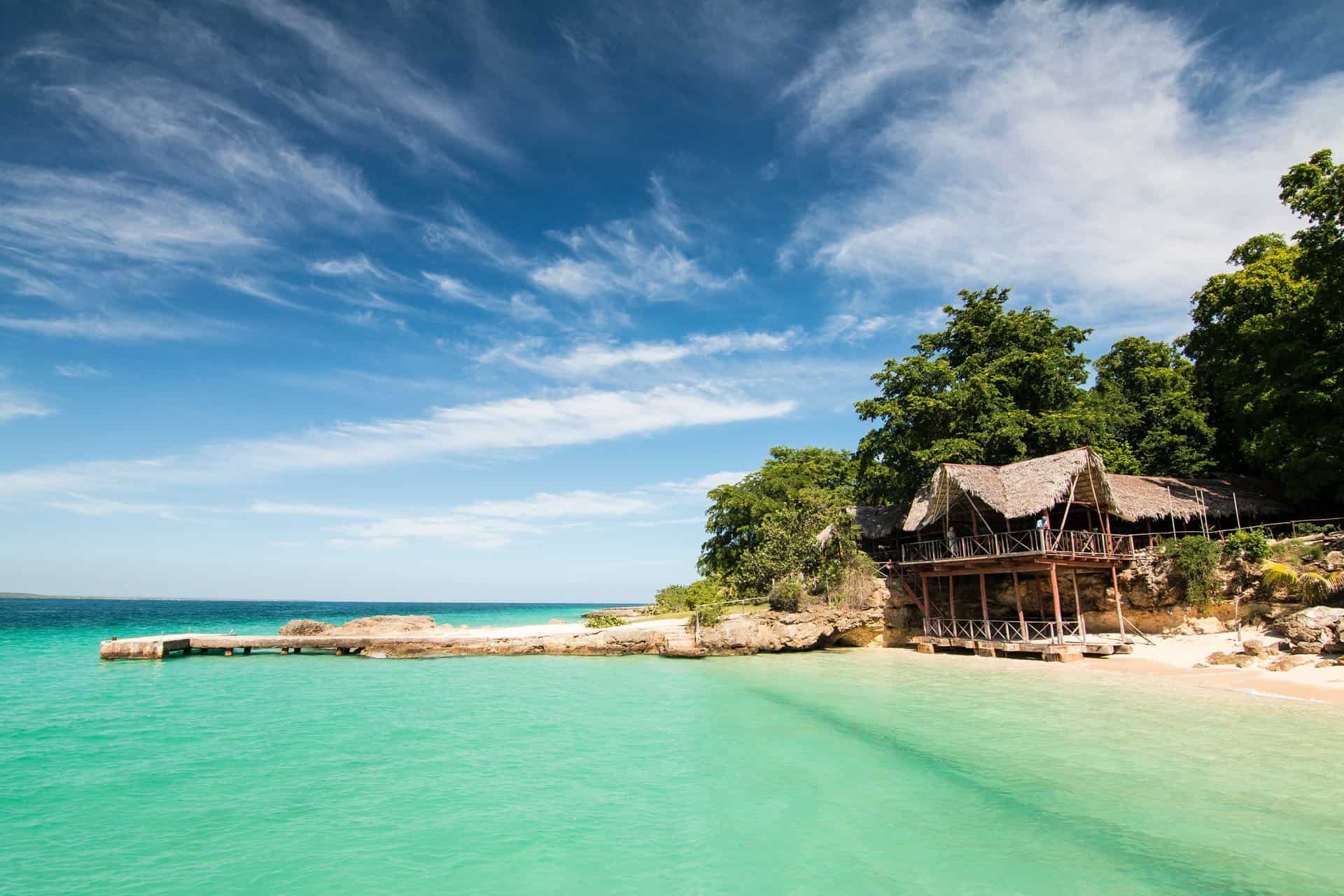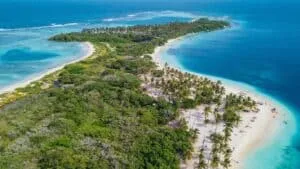
Juliet Kinsman, founding editor of Mr & Mrs Smith and creator of Bouteco,
shares her favourite pioneering properties and highlights some of the leaders in sustainable travel. Her reflection and optimism during this period of isolation provides some welcome inspiration for the future of bespoke travel.

What does the Juliet Kinsman lockdown look like?
I’m at home in my little flat in Notting Hill, and living a slow more grounded life contemplating a healthier future for travel. I’ve loved having time to recalibrate — I was always on the go, and I don’t think that’s a healthy way for anyone to live. I’m hopeful as we learn to go back to basics and realise how we don’t need so much stuff to be happy, just as the Slow Food movement has re-ignited our appreciation of age-old wisdom and the pleasure of simple, quality cooking, I hope we can get our heads around those same virtues when it comes to travel. I hope people buy less, but buy better. Think deeper about how their holidays can be a force for doing good and helping with global wealth distribution. Just as your average consumer is more aware of the negative impacts of fast fashion with its production line of toxic chemicals, child labour, and disposability. In the past, I would spend my weekends desperately trying to catch up on emails, but now I savour the opportunity to just be… I think we’d forgotten how to be human beings and we had become human beings. Dare I admit I have very much loved the slowdown and taking time to do everything slowly and live entirely in the moment. Cooking from scratch, dealing with admin as and when it comes in, appreciating the little things right in front of you — the way the morning sun looks through the curtains (which I made myself rather than the usual outsourcing of today’s living!), or the abundance of cherry blossom on the trees outside; I’m happy to not constantly be chasing my tail. And truthfully I’ve not missed traveling one bit… I have many lifetimes worth of happy exotic travel memories to keep me going for some time.
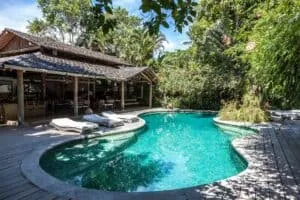
We love the idea behind Bouteco. Tell us a bit about the project and your key criteria.
Thank you — I wanted to shine a light on the design hotels doing good. When I created the platform a few years ago, no one was shining a spotlight on the sexiest boutique eco hotels. Having been editor-in-chief of Mr & Mrs Smith for a dozen years, meeting philanthropic hoteliers such as Wilbert Das who has created the most incredible sustainable hideaway in Uxua in Trancoso. Hoping to help save the traditional craft industry from dying out, their collaborations over the years have made cover stars of the work of local artisans, giving new relevance to a traditional rustic style of design. I have loved working with hotels as BOUTECO, my consultancy, to help travel brands decide what it is they’re going to stand for, and stand out for it. Opening eyes to how important it is to consider a hotel’s behind-the-scenes practices and supply chain as much as the stuff that looks nice in pictures and what we get to enjoy as guests… Trust me, a stay somewhere that makes sure all the vegetables they are grown in 100% organic soil, free from pesticides and is using food waste compost – from their own organic waste! — tastes all the sweeter. Props to Patrick Powell at Allegra at the Stratford as just one example of a restaurant that has a wonderful closed loop when it comes to zero food waste. I worked with hotels such as Salt de Palmar in Mauritius and Bankside in London long before they opened to help their teams think outside of the box when it comes to eco practices, or which of the United Nation’s Sustainable Development Goals they can best align with and promote.
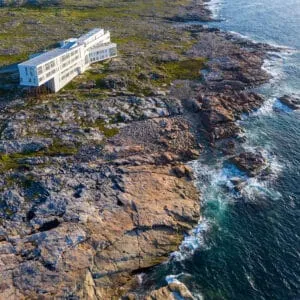
Which countries do you feel are excelling in their approach to sustainable travel and why?
Venezuela may betray serious political instability but this nation is a leader when it comes to protecting land. More than half of this South American country is national parkland or a Unesco-protected biosphere reserve. I actually think we’re pretty good in the United Kingdom. All mass tourism needs to consider the impact of convenience and review operations but I do think when it comes to the UK, we’re pretty woke — or at least getting to be much more aware of energy consumption, minimising waste, and the importance of ensuring staff is treated fairly and having organic food and drink in the supply chain. Of course, Sweden, as with Scandinavia in general, has long been ahead of all of us.
Worldwide, can you name three benchmark properties for their sustainable practices?
Grootbos South Africa — At first glance it might just seem like an upscale hotel and restaurant with a private reserve. But it’s not just about immersing visitors in nature or even feeding you from their organic farm. It’s the social impact they’re having. I absolutely loved the beautifully illustrated menus which explained just how local their ingredients are and all about their Growing the Future organic farm, their social enterprise project which provides the free-range eggs, and fynbos honey. They also run a hospitality and training school which is imparting invaluable skills to the local community.
Fogo Island Inn — I’ve written about this endlessly! Especially Zita Cobb’s Economic Nutrition label: here’s my CN Traveler article.
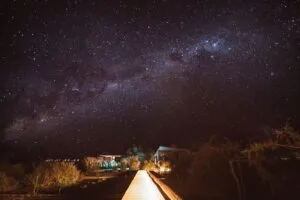
Which conservation projects do you most admire and why?
Cottar’s 1920s Safari Camp in Kenya, a member of the Long Run, is a shining example with their Wildlife Conservation Trust. This safari lodge doesn’t just approach conservation the right way; they have set a benchmark with what they call their Theory of Change a framework that honours a balance between conservation, prosperous commerce, community, and culture. With no hunting as when their forefathers started out; the only shooting here is with seriously impressive long lenses. Calvin Cottar started creating the Olderkesi Conservancy two decades ago and in that time trialed their out-of-the-box ideas so that natural biodiversity and tourism could be seen to improve rural livelihoods, and provide more effective wildlife conservation. It’s a reminder that there’s no one-size-fits-all sustainability model — geography, culture, and commerce styles vary, and so must hospitality models. They show a great respect for the local Maasai people and ensure they benefit from tourism, all the while boosting biodiversity, and allowing wildlife conservation.
Where’s your favorite place in Latin America for taking photos and why?
The Atacama Desert, on a moonless night – it’s one thing to have a brightly lit night from the moon, but it’s an entirely different sensation to be walking around an otherworldly landscape at night and to see perfectly well just with starlight.
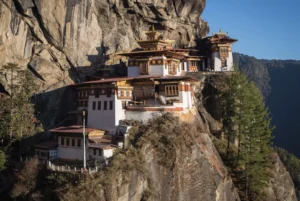
Where in the world are you happiest?
Anywhere lush and green. I am writing this on my phone in Wormwood Scrubs, which is a big sprawl of green in West London which I’d never been to despite living around here for more than 20 years. I get butterflies thinking about walks through the incredible art enclave in the jungle Inhotim in Brazil, the Catskill Mountains in Upstate New York, or sitting in cafes overlooking the paddy fields of Bali.
When normality returns, which part of the world are you most looking forward to exploring?
I’m meant to be filming a new travel TV series for Channel 4 right now… I hope we can still pick this up later in the year and get to Bhutan as planned — I am keen to experience in person this nation which measures its prosperity through its people’s happiness. Travel to the last Buddhist kingdom in the Himalayas is very regulated which means all arrangements are made on a bespoke basis or as part of a small group, so there’s more flexibility.
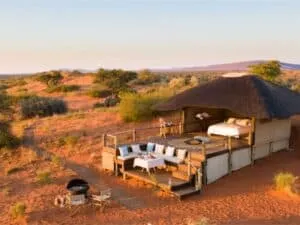
What are you reading at the moment, and which playlist or podcast is getting airtime?
I love reading my weekly copies of New Scientist; understanding the science behind what’s happening in our world has never been more relevant. And would you forgive me for mentioning I just had a podcast, recorded in Lockdown, come out this week? It’s about what might post-pandemic travel look like and how can hospitality be a positive support and help empower local economies. This Everywoman episode looks at the importance of sustainability — from scrutinising supply chains and hospitality that support the education of women. On Apple Podcasts: Every Woman
There are big shifts underway – as a society, how do you see our travel habits developing?
I love that we’re all learning to slow down a lot and we’ll take more pleasure from the planning and the anticipation rather than hopping on planes all the time. We had entered an era of hyper-travel… And I am hoping the human race will now better appreciate deferred gratification rather than instant gratification all of the time. Particularly children. I think we’ll need to consider the value of wealth distribution through every consumer purchasing decision we make. Having transferred my professional attention from luxury travel to sustainability in recent years it’s something I’ve been talking about a lot. But where travel editors would reply to my pitches a few years ago with “No one cares about this sustainable stuff Juliet, not me or our readers…” I am happy now I can talk about supply chains and transparency in business operations without eyes glazing over.
Related Stories
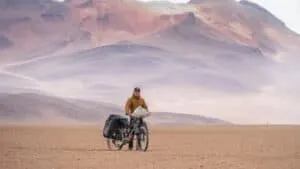
An Interview with Dimitri Poffé | ExploreForHuntington
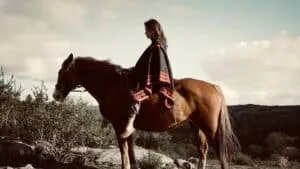
An Interview with Rhona Mitra | The Last Ark Orphanage
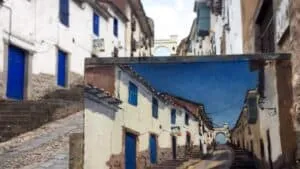
Artist Interview | Alice Boggis-Rolfe | Plan South America

Hay Festival | An Interview with Cristina Fuentes La Roche
@plansouthamerica
